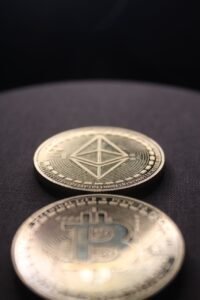Okinawa Marks 80th Anniversary of WWII Battle: Remembering the Past Seeking Peace
- Jun 24, 2025
- 8 min read

The recent Okinawa WWII Anniversary served as a poignant reminder of the brutal battle fought on the island and its lasting impact. The commemoration of the 80th anniversary of the end of the conflict was not just a look back; it was a powerful statement about the enduring human desire for peace. The ceremony held at the Peace Memorial Park in Itoman, was a somber event, underscoring the immense sacrifices made during the war. Moreover, it highlighted the ongoing challenges faced by Okinawa, particularly the presence of U.S. military installations and the associated social and environmental burdens.
The Okinawa WWII Anniversary also provided a platform for reflection on the complexities of history. The event prompted discussions about the present-day challenges faced by Okinawa, especially the presence of U.S. military bases and the ongoing quest for a more peaceful future. Furthermore, the addition of names to the war dead list served as a stark reminder of the immense human cost. In conclusion, the anniversary underscored the importance of preserving the stories of survivors and ensuring that the horrors of war are never forgotten.
Okinawa's Echoes: Remembering the 80th Anniversary of the Battle and the Enduring Quest for Peace
The island of Okinawa, a place etched in history with the scars of a brutal battle, recently commemorated the 80th anniversary of the end of the World War II ground conflict. This solemn occasion served not merely as a remembrance of the past, but as a powerful testament to the enduring human spirit's quest for peace. The ceremony, held at the Peace Memorial Park in Itoman, was a poignant reminder of the devastating toll of war, a conflict that claimed the lives of over 200,000 military personnel and civilians. The echoes of the battle resonate even today, a stark reminder of the sacrifices made and the lessons learned. The event underscored the importance of preserving the stories of survivors and ensuring that the horrors of war are never forgotten, a crucial endeavor in a world grappling with rising international tensions. The ceremony also highlighted the ongoing challenges faced by Okinawa, particularly the presence of U.S. military installations and the associated social and environmental burdens.
The ceremony was attended by prominent figures, including Prime Minister Shigeru Ishiba and Okinawa Governor Denny Tamaki, both of whom delivered impassioned speeches emphasizing the importance of peace and the need to learn from the past. Governor Tamaki, in particular, underscored the significance of the battle's realities, preserved through the narratives of war survivors, as the bedrock of the Okinawan people's unwavering desire for peace. He emphasized the responsibility of the present generation to safeguard and transmit the significance of the battle to future generations, embodying the true spirit of Okinawa. The addition of 342 names to the list of war dead, bringing the total to 242,567, served as a stark reminder of the immense human cost of the conflict. Prime Minister Ishiba echoed these sentiments, stating that it is the nation's critical duty to confront the folly and tragedy of war and to strive for a peaceful and prosperous Okinawa. The event also witnessed the laying of flowers at the monument of the Himeyuri student corps, a nursing unit, honoring the civilians who lost their lives during the battle, a moment of deep solemnity.
The Battle of Okinawa, which raged from March to June 1945, left an indelible mark on the island and its people. The local population suffered a devastating blow, with one in four residents losing their lives. The conflict was marked by instances of civilian abuse and forced suicides orchestrated by the Japanese military, adding to the tragedy. The legacy of the battle continues to shape Okinawa's identity and its relationship with the world. Following Japan's defeat, Okinawa remained under U.S. administration until 1972, a period that has left a lasting impact on the island's social, economic, and political landscape. Even today, Okinawa bears a significant burden, as it continues to host a large number of U.S. military installations, a source of long-standing resentment among the local population. The recent allegations of sexual assault cases have further exacerbated these tensions. Prime Minister Ishiba pledged to visibly reduce the burden of U.S. bases in Okinawa, a commitment that reflects the deep-seated desire for peace and a more equitable future for the island.
The Shadows of Conflict: Unpacking the Complexities of Okinawa's History
The 80th anniversary of the end of the Battle of Okinawa serves as a poignant reminder of the complex historical tapestry woven on this small island. The battle, a brutal and protracted conflict, was a turning point in the Pacific theater of World War II, leaving behind a legacy of devastation and lasting impact on the Okinawan people. The event also provides a crucial opportunity to delve into the intricate interplay of historical narratives, political tensions, and the enduring quest for peace. The inclusion of additional names of the war dead on monuments highlights the immense human cost of the conflict, a somber testament to the lives lost and the sacrifices made. The ceremony, attended by dignitaries and survivors alike, underscores the importance of remembering the past and learning from the mistakes of history. The event also sparked discussions about the present-day challenges faced by Okinawa, particularly the presence of U.S. military bases and the ongoing quest for a more peaceful and equitable future.
The Battle of Okinawa was not merely a military conflict; it was a crucible that forged the identity of the Okinawan people. The intense fighting resulted in a devastating toll on the local population, with a significant percentage of residents losing their lives. The battle was also marked by instances of civilian abuse and forced suicides orchestrated by the Japanese military, adding to the tragedy and highlighting the complexities of the conflict. The event served as a stark reminder of the horrors of war and the importance of preserving the stories of survivors, a crucial endeavor in a world grappling with rising international tensions. The presence of U.S. military installations on the island continues to be a source of contention, with long-standing resentment over issues such as noise, pollution, and crimes committed by U.S. troops. The recent allegations of sexual assault cases have further exacerbated these tensions, underscoring the need for greater understanding and cooperation. The Prime Minister's pledge to reduce the burden of U.S. bases reflects the deep-seated desire for peace and a more equitable future for the island.
The historical narrative of Okinawa is far from simple, and the recent anniversary serves as a catalyst for a deeper examination of the past. The controversial comments made by a lawmaker regarding the portrayal of civilian deaths at a local museum underscore the ongoing debate surrounding the interpretation of history. The exhibit, which was accused of rewriting the history of the Himeyuri student corps to portray the Japanese military negatively, highlights the sensitivity surrounding the events of the war. The Himeyuri corps, originally formed as a nursing unit, represents the civilian sacrifices made during the battle. The Prime Minister's reference to the Himeyuri corps in his speech and the laying of flowers at their monument reflect the deep sense of solemnity surrounding the event. The increasing defense capabilities in the prefecture due to rising tensions with China over Taiwan and the nearby Senkaku Islands have raised concerns among Okinawans that their islands could once again become a front line of conflict. The event underscores the importance of diplomacy and peaceful resolution to prevent future conflicts.
The Weight of Memory: Examining the Human Cost and the Path to Reconciliation in Okinawa
The 80th anniversary of the end of the Battle of Okinawa was a profound moment of reflection, a time to acknowledge the immense human cost of war and to reaffirm the commitment to peace. The ceremony, held in the Peace Memorial Park, served as a solemn reminder of the devastation wrought by the conflict, which claimed the lives of over 200,000 people, both military and civilian. The event provided a crucial opportunity to honor the memory of those who perished and to reaffirm the importance of preserving the lessons learned from the past. The addition of 342 names to the list of war dead inscribed on monuments, bringing the total to 242,567, underscores the magnitude of the tragedy and the enduring impact on the Okinawan people. The event was attended by Prime Minister Shigeru Ishiba and Okinawa Governor Denny Tamaki, who emphasized the importance of peace and the need to learn from the past. Their presence underscored the significance of the occasion and the shared commitment to preventing future conflicts.
The Battle of Okinawa, a brutal and protracted conflict, had a devastating impact on the local population. The island's residents suffered a significant loss of life, and the battle was marked by instances of civilian abuse and forced suicides orchestrated by the Japanese military. The legacy of the battle continues to shape Okinawa's identity and its relationship with the world. The presence of U.S. military installations on the island remains a source of contention, with long-standing resentment over issues such as noise, pollution, and crimes committed by U.S. troops. The recent allegations of sexual assault cases have further exacerbated these tensions, highlighting the need for greater understanding and cooperation. Prime Minister Ishiba pledged to visibly reduce the burden of U.S. bases in Okinawa, a commitment that reflects the deep-seated desire for peace and a more equitable future for the island. The ceremony also provided an opportunity to honor the memory of the Himeyuri student corps, a nursing unit that played a vital role during the battle. The Prime Minister's reference to the corps in his speech and the laying of flowers at their monument reflect the deep sense of solemnity surrounding the event.
The path to reconciliation in Okinawa is a complex and ongoing process. The island's history is marked by both tragedy and resilience, and the recent anniversary serves as a catalyst for a deeper examination of the past. The increasing defense capabilities in the prefecture due to rising tensions with China over Taiwan and the nearby Senkaku Islands have raised concerns among Okinawans that their islands could once again become a front line of conflict. The event underscores the importance of diplomacy and peaceful resolution to prevent future conflicts. The presence of war survivors and their relatives at the ceremony, paying their respects at the Itoman park's Cornerstone of Peace, serves as a powerful reminder of the human cost of war and the enduring quest for peace. The words of Asako Idogawa, 89, who was in a wheelchair and repeatedly traced the inscription of her older brother's name, who was burned by a U.S. flamethrower, express the cruelty of war. The event highlights the importance of preserving the stories of survivors and ensuring that the horrors of war are never forgotten, a crucial endeavor in a world grappling with rising international tensions.
Aspect | Details |
Event Commemorated | 80th Anniversary of the end of the Battle of Okinawa (World War II) |
Location | Peace Memorial Park, Itoman, Okinawa |
Key Themes | Remembrance of the past, quest for peace, enduring human spirit, and the impact of war. |
Human Cost | Over 200,000 military personnel and civilians lost their lives. |
Key Figures | Prime Minister Shigeru Ishiba, Okinawa Governor Denny Tamaki |
Key Actions & Events | Speeches emphasizing peace, addition of names to war dead lists, laying of flowers at the Himeyuri student corps monument. |
Ongoing Challenges | Presence of U.S. military installations, social and environmental burdens, allegations of sexual assault cases. |
Historical Context | Battle of Okinawa (March-June 1945), civilian abuse, forced suicides, U.S. administration until 1972. |
Impact on Okinawa | Devastating loss of life, shaping of identity, and relationship with the world. |
Future Concerns | Rising tensions with China, potential for Okinawa to become a front line of conflict again. |
Key Phrase | Okinawa's Quest for Peace, The enduring quest for peace |
From our network :






















































Comments